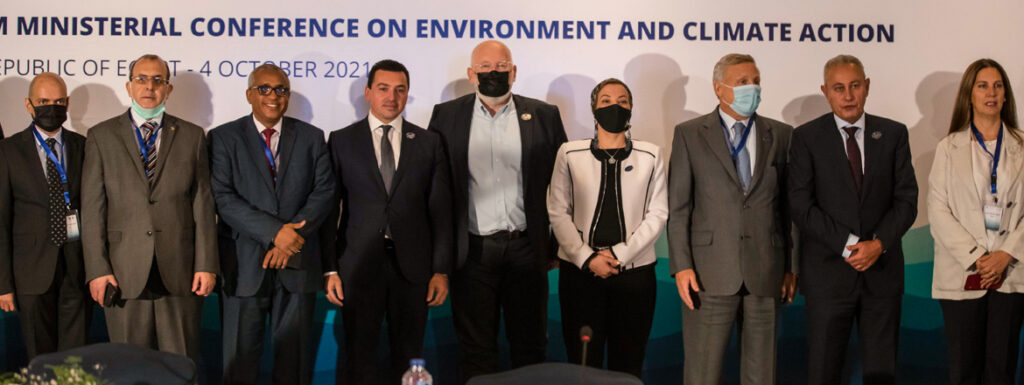
The 2nd Union for the Mediterranean Ministerial Conference on Environment and Climate Action
The Ministers from the 42 Member countries of the Union for the Mediterranean (UfM) gathered on 4 October 2021 in Cairo at the 2nd UfM Ministerial Conference on Environment and Climate action under the Co-Presidency of Jordan and the European Union.
They agreed on a common agenda to strengthen efforts in the Euro-Mediterranean region to urgently tackle the multiple climate and environmental challenges it faces. This commitment reflects the highest possible ambition in accelerating transition towards sustainable, climate-neutral and green economies.
The Summary for Policymakers (SPM) of MedECC First Mediterranean Assessment Report (MAR1) was acknowledged in the ministerial declaration as an important input from the scientific community to inform future climate and environmental actions in the region.
A critical moment for the region
This second UfM Ministerial Conference comes at a critical moment for the region only a few weeks ahead of COP26 and following a summer dominated by climate and environmental emergencies across the region. The dire warning calls of the Intergovernmental Panel on Climate Change and the network of Mediterranean experts on climate change (MedECC) also drew attention to the Mediterranean as one of the world’s hotspots of climate change. During the conference, Ministers acknowledged the urgency of taking action and reasserted a firm ambition to tackle climate and environmental challenges through the full implementation of the Paris Agreement and the Agenda 2030.
Through the Declaration adopted at the conference, Ministers reaffirmed their commitment to lead by example and reflect the highest possible ambition by accelerating the transition towards fair, resilient, climate-neutral and resource-efficient economies in an attempt to limit average global temperature rise to 1.5°C, halt and reverse biodiversity loss and reduce air pollution.
Ministers stressed the importance of mainstreaming environment and climate action across all sectoral policies, including energy, industry, agriculture and transport, while mobilizing and scaling up resources to support the green transition. Investments and sustainable finance featured high on the agenda, as well as the need to step up action on adaptation and to reinforce the science-policy nexus. Ministers reaffirmed the need to progressively reduce the use of fossil fuels, ensure a just transition and engage all stakeholders in environmental and climate policy-making as well as the importance of supporting women and youth engagement in building resilience and driving the green transition.
